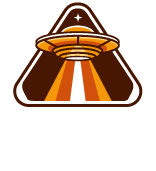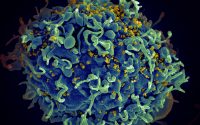Do Vaccines Cause Autism?
If you are considering vaccination for your child, there are many questions to ask. One of these questions is whether or not vaccinations cause autism. This is a very important question, because a large number of children who have autism were vaccinated.
MMR vaccine
A small study in 1998 raised the possibility that the MMR vaccine may cause autism. This study is now the subject of debate. Although the findings were not definitive, the findings did demonstrate the need for more research into the relationship between vaccines and autism.
The study was a small case series of 12 children who were diagnosed with autism. These children reported gastrointestinal symptoms which Wakefield and his colleagues hypothesized may have been caused by the MMR vaccine.
Researchers omitted critical information from the study. They also failed to include a control group. In addition, their paper did not compare the rate of autism in vaccinated and unvaccinated children.
Andrew Wakefield and his co-authors proposed that the measles-mumps-rubella (MMR) vaccine may cause a “new variant” form of autism. However, the study was retracted twelve years ago.
There are numerous studies which have discredited the idea that the MMR vaccine causes autism. It’s important for parents to learn as much as possible about vaccines.
Thimerosal-containing vaccines
Thimerosal-containing vaccines have raised concerns about the health of children. While several studies have looked at the connection between these vaccines and autism, none have found any conclusive proof.
The mercury militia, a group of people who believe that the level of mercury in vaccines is too high, claims that thimerosal-containing vaccines cause autism. They have also claimed that thimerosal-containing vaccines are unsafe and that they cause other diseases. Some have even gone so far as to sue the principal manufacturers of the thimerosal.
Although it is known that mercury negatively affects neurological development in infants, the link between thimerosal-containing vaccines and autism has yet to be established. However, future research could provide some proof that thimerosal-containing vaccines can cause autism.
One study aimed to examine the effects of thimerosal exposure on infant macaques. Macaques were exposed to the preservative and were later divided into two groups. In one group, rhesus macaques were vaccinated with infant rhesus vaccines containing thimerosal.
MMR-only vaccinations
When the MMR vaccine became widely available, it was thought that the risk of autism could be reduced by up to 50%. However, the study done by Dr Andrew Wakefield and published in the British medical journal The Lancet, failed to prove this. In fact, it was retracted, and no one has been able to replicate it.
The Lancet is just one of several scientific journals that published a study by Andrew Wakefield. He studied 12 children. He found no connection between MMR vaccination and autism. After the publication of his study, he was struck off the British medical register for ethical misconduct.
A more recent study compared the incidence of autism in two Swedish towns before and after MMR vaccination. It used Cox proportional hazards regression to determine if the risk of developing autism increased after the vaccination. The results were surprising.
Although the magnitude of the risk was a statistically significant difference, the sample size was tiny. This led to a skewed measure of the association between MMR and autism.
Regressive autism
There are no definitive studies that prove vaccines cause autism, but many parents believe that it is possible. In some cases, vaccines may be the trigger for an immune activation event that leads to regressive autism. Vaccines are designed to trigger an immune response, which may lead to inflammation. However, the leading scientists do not know how often this happens.
The most commonly cited theory is that vaccines cause autism when the immune system is overwhelmed by the simultaneous administration of several vaccines. This theory is based on the fact that each vaccine creates a small amount of inflammation. It is also possible that each vaccine exacerbates the inflammation already present in the body.
Some leading scientists believe that vaccines may have a direct link to autism. They have proposed a number of theories. One of these is the possibility that the MMR vaccine is linked to autism because it causes intestinal inflammation. Symptoms of intestinal inflammation include translocation of nonpermeable peptides into the bloodstream. Another theory is that the MMR vaccination weakens the immune system.



